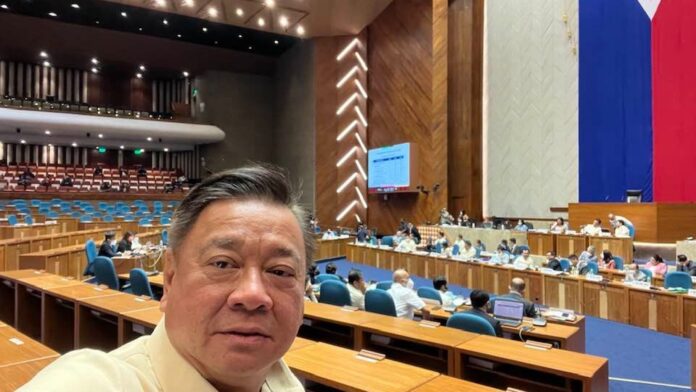Deputy Speaker and Davao City 3rd District Rep. Isidro T. Ungab advised the Department of Budget and Management to get ready to defend its 2023 budget submission, particularly its proposed P588.1 billion in unprogrammed appropriations (UAs).
In a statement on Tuesday, he said he anticipates that there may be several inquiries on the P588.1 billion in unprogrammed appropriations, which account for 16 percent of the total programmed new appropriations in the proposed budget for 2023. This is a significant change from the historical average of 2 to 5 percent in prior years.
Ungab also pointed out that the standard or usual percentage level authorized for the unprogrammed appropriations shall not exceed two percent of the total proposed expenditures in the programmed component of the General Appropriations Act (GAA), according to the Budget Reform Bill, which was heavily debated and approved on third and final reading in the 17th Congress House Plenary.
The unprogrammed appropriations are standby appropriations and not backed up by revenues. Any expenditure from this fund may only be authorized when supported by: Excess revenue collections in any one of the identified non-tax revenue sources from its corresponding revenue collection targets, as reflected in the Budget of Expenditures and Sources of Financing (BESF); New revenue collections or those arising from new tax or non-tax sources which are not part of, nor included in, the original revenue sources reflected in the BESF; or Approved loans for foreign-assisted projects, the lawmaker explained.
He emphasized the need for DBM to be able to say definitively if these unprogrammed appropriations are included in the “appropriations” referred to in the Constitution. Ungab clarified that although these appropriations were not considered to be supported by revenues when the President submitted the National Expenditure Program (NEP) to Congress, he still saw them as a component of President Ferdinand Marcos Jr.’s proposal under the NEP.
However, the solon also made note of how unprogrammed appropriations are netted out as part of the “Obligation Budget or the Cash-based budget” even though they are a component of the NEP.
“I believe clarifications on these UAs must be made, considering its impact on the fiscal discipline or fiscal program of the national government, since the Unprogrammed Appropriations are also considered revenue-based expenditure. Thus, it would be best if we will [be] able to include these UAs in the budget, with sufficient guidelines and proper limitations,” Ungab remarked.
He also brought up the possibility that a large amount of unprogrammed funds might make it difficult to support future supplemental budgets, noting that extra or new revenue sources might be used first to pay for unprogrammed appropriations in the GAA, even if the new programs or projects are of equal or more importance.
Photo Credit: Facebook/isidrotom.ungab


